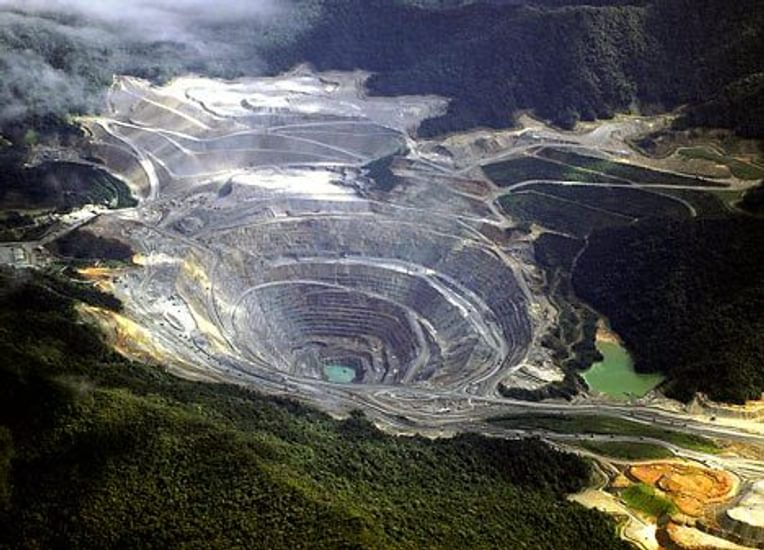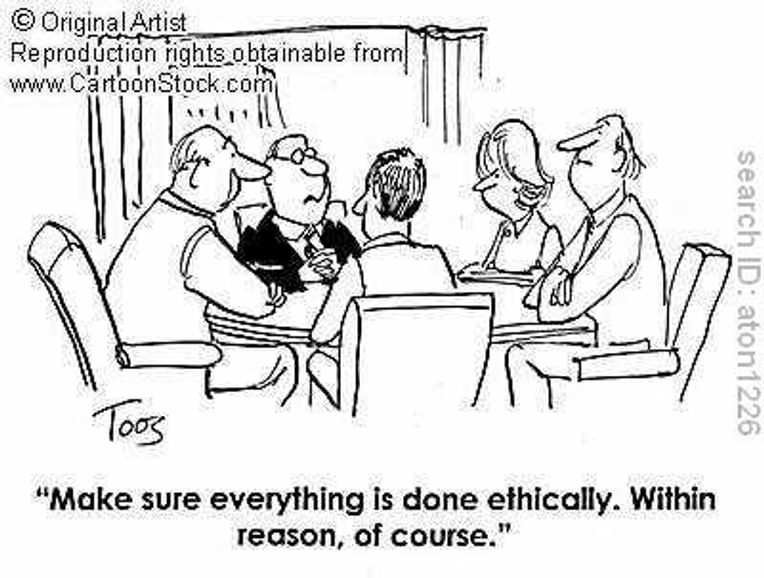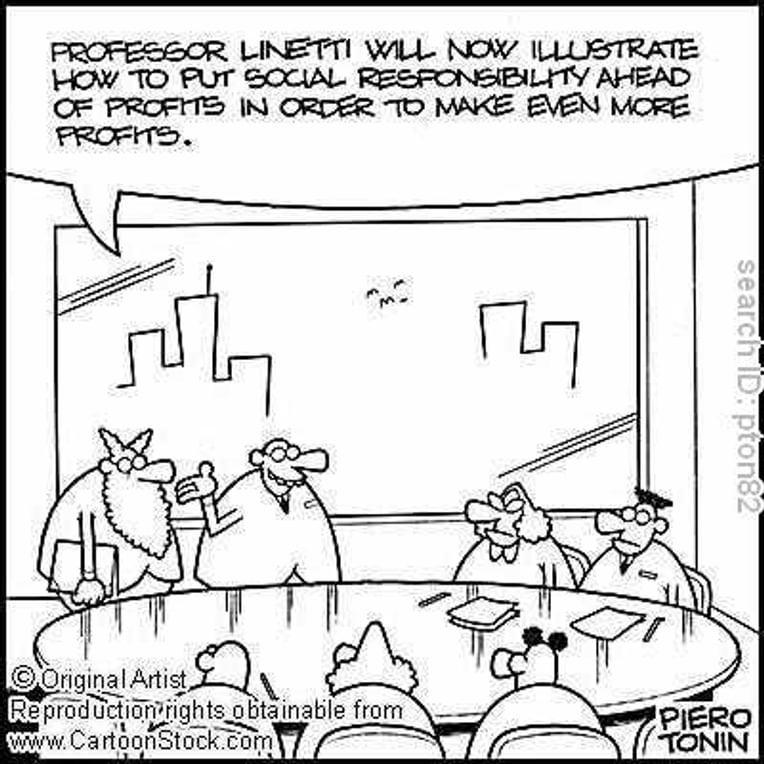This post builds on the research article “"Corporate Security Begins in the Community": Mining, the Corporate Responsibility Industry, and Environmental Advocacy in Indonesia,” which was published in the February 2009 issue of the Society’s peer-reviewed journal, Cultural Anthropology.

Editorial Footnotes
Cultural Anthropology has published a number of other essays on environmental politics. See for example, Paul W. Hanson’s “Governmentality, Language Ideology, and the Production of Needs in Malagasy Conservation and Development” (2007); Ananthakrishnan Aiyer’s “The Allure of the Transnational: Notes on Some Aspects of the Political Economy of Water in India” (2007); and David McDermott Hughes’ “Third Nature: Making Space and Time in the Great Limpopo Conservation Area” (2005).
Cultural Anthropology has also published a has published a range of articles that analyze corporations as cultural producers. See, for example, Robert J. Foster's “The Work of the New Economy: Consumers, Brands, and Value Creation” (2007); Martha Kaplan’s “Fijian Water in Fiji and New York: Local Politics and a Global Commodity” (2007); and Sarah S. Lochlann Jain’s “'Dangerous Instrumentality': The Bystander as Subject in Automobility” (1999)

Additional Readings
A CLOSER LOOK AT THE INDUSTRY OF CORPORATE SOCIAL RESPONSIBILITY: DO WE EXPECT CAPITALISM TO BEHAVE?
Some see the global financial crisis pointing to the inherent vulnerabilities of capitalism; others see an anomaly caused by greedy corporate fat cats who exploited their positions. Still, others will always see an adjusting market that will eventually stabilize and balance itself. The resulting collision of discourses points towards a common theme in the Welker article — the growing trend to demand and/or market ethical capitalism and corporate responsibility. Whether reading the quote below by Barack Obama, Welker’s article, or the examples below on Corporate Social Responsibility (CSR), the messaging is consistent: an emerging articulation of capitalism that is shot through with languages of competition, community development, responsibility, benefit, ethics, consequences and trust. Please review the article and look at the following links in reference to the questions below.
"We all need to take responsibility. And this includes executives at major financial firms who turned to the American people, hat in hand, when they were in trouble, even as they paid themselves their customary lavish bonuses. As I said last week, that’s the height of irresponsibility. That's shameful. And that’s exactly the kind of disregard for the costs and consequences of their actions that brought about this crisis: a culture of narrow self-interest and short-term gain at the expense of everything else.
This is America. We don't disparage wealth. We don't begrudge anybody for achieving success. And we believe that success should be rewarded. But what gets people upset –- and rightfully so -– are executives being rewarded for failure. Especially when those rewards are subsidized by U.S. taxpayers. For top executives to award themselves these kinds of compensation packages in the midst of this economic crisis is not only in bad taste –- it's a bad strategy -– and I will not tolerate it as president. We're going to be demanding some restraint in exchange for federal aid –- so that when firms seek new federal dollars, we won’t find them up to the same old tricks."
source:Günter Verheugen, Vice-President of the European Commission responsible for Enterprise and Industry:
"We" class="redactor-autoparser-object">Günter Verheugen, Vice-President of the European Commission responsible for Enterprise and Industry:
"We" class="redactor-autoparser-object">Günter Verheugen, Vice-President of the European Commission responsible for Enterprise and Industry:
"We" class="redactor-autoparser-object">http://content.usatoday.com/communities/theoval/post/2009/02/62365476/
Günter Verheugen, Vice-President of the European Commission responsible for Enterprise and Industry:
"We found the links between CSR and competitiveness to be most intense when looking at human resources, risk and reputation management, and innovation. The link between CSR and innovation is exciting and demonstrates the business potential, which is underestimated up to now. Socially responsible enterprises will find themselves in a better position than others, since they can rely on a lot of strengths, including their dedicated workforce. Our report demonstrates that CSR is good in good times, but an undeniable must to cope with bad times. One can also argue that CSR becomes even more significant precisely because of financial crisis and recession. CSR helps to build trust, and trust is a vital commodity in the current circumstances." [emphasis added]
source: http://www.csreurope.org/news.php?type=&action=show_news&news_id=194

Questions for Classroom Discussion
1) In the quotes above and in Welker’s article, morality, ethics and responsibility are proposed as basic tenets of corporate business practices. What is the Corporate Social Responsibility (CSR) Industry? What are the main features of CSR that are most pertinent to Welker’s article? And what are the logics that undergird the corporate impetus towards CSR?
2) What tactics and strategies did Newmont specifically employ in order to create for itself a moral character? What kinds of relationships of power did these tactics create and how did the tactics eventually work?
3) Do you think that Welker is calling for a corporate code of ethics? If yes, what to you think this would entail and do you feel that corporations should be held accountable in this fashion? If yes, how?
4) From business, to policing, education to public health, there is a valorization and emphasis on transparency. Please review the following quote from Welker and explain what Welker means by the terms transparency and accountability and the ways in which these terms can be extremely problematic and contested?
“This strategy shows some of the coercive and, ironically, concealed ways in which corporations can use moral discourses of transparency and accountability against activists, joining a groundswell of disappointment and disaffection with NGOs” (p. 159).
5) Please review the quote by Welker and explain the following quote: “Information, like capital, is “lumpy.” Consider your answer in question 4.
6) Please read the following passage and explain what Welker is calling for. Then, decide if you agree with her. Please explain your response to this passage and her call for this type of analysis.
“Rather, we need modes of analysis that carefully show how the moral commitments of capitalism’s defenders emerge and cohere in an era when grassroots approaches to corporate security are nourished by the CSR industry, development projects, and corporate mimicry of environmental values and discourse” (p. 166).
7) Refer to the quote and your answer for question 6. Now, craft a response that counters your answer. In other words, play devil’s advocate: if you supported Welker’s call, you are now being asked to critique her stance.
8) Reviewing your responses to question 6 and 7 might make visible the “spin” you can put on a topic — you might have discovered that recognizable rhetorical devices can be deployed either in support of social responsibility or the free market. Make a list of some of the key terms associated with each side of the argument – it might help by referring back to the language used in the two quotes at the opening.
9) Welker states, “This essay shows that the CSR industry is coevolving alongside environmental advocacy campaigns and grassroots corporate security models” (p. 168). Refer back to the quote about CSR at the beginning of this essay – does this support Welker’s claim? To assist you in the answer you will need to unpack the phrase “grassroots corporate security models” — can a corporation be a grassroots organization?
10) Please refer to the link below and review the short article. Do you think that the conclusion and the “list” of what CSR should refer to is an accurate picture of what the public and investors are calling for? Is this what Welker is calling for?
11a) Building on the Forbes article by Betsy Atkins, review the following links to BP and their energy campaign that “makes the consuming public feel good about purchasing BP products” and respond to the following questions: a) do you think that BP is changing their corporate practices or their corporate image; b) do you think the campaign is reflective of CSR; c) do you think this is the type of work Welker is calling for?
b) Consider your own personal shopping practices. Are you strategic in your shopping choices? Do you think you are a consumer looking for CSR? What do you make of the characterization put forth by Welker and Atkins (Forbes article)?
12) The area of CSR – and by extension corporate security – is an emerging area of corporate practice that requires divergent skills and expertise. Do you think that corporations will turn to anthropologists as experts to assist in new CSR projects? Do you think that anthropology has a role to play in this new area? Please explain your answer.
13) Google search CSR and Voluntary Principles on Security and Human Rights. Identify three pages not referenced on this page and briefly review each page. What types of language did you find and how did it relate to the list you produced in question 8.
14) An important component of Welker's analysis is "understanding the emergence and coherence of the moral commitments of “political Others”2 who violently defend capital" (p. 143). In the context of Batu Hijau, which members of the community get enlisted in Newmont's corporate security efforts and how? Who is excluded? How is opposition to mining systematically refuted by CSR initiatives, development projects and corporate mimicry of environmental values?
15) Why is it not enough to attribute the story that unfolds in Welker’s article simply to the inherent forces or workings of capitalism? According to Welker is it possible to reduce practices of corporate responsibility to profit maximization? Why or why not? In your answer please cite examples from the text and the analytics she speaks against. How does global capitalism, then, get constituted?
